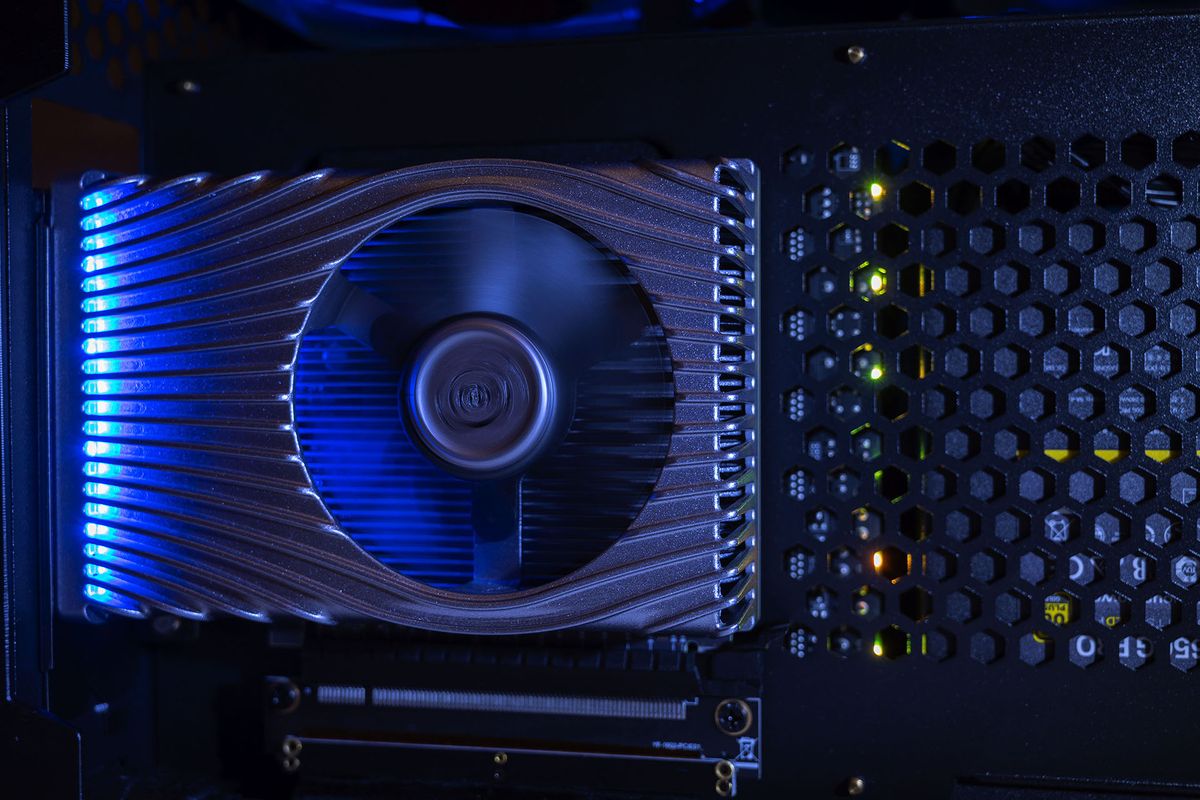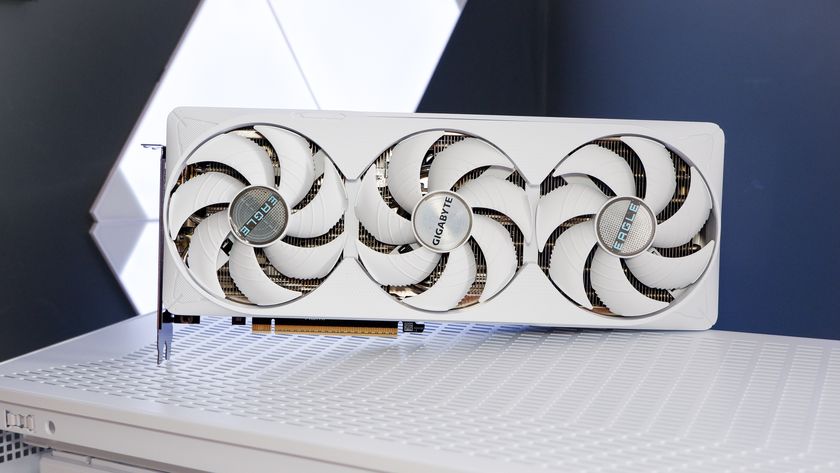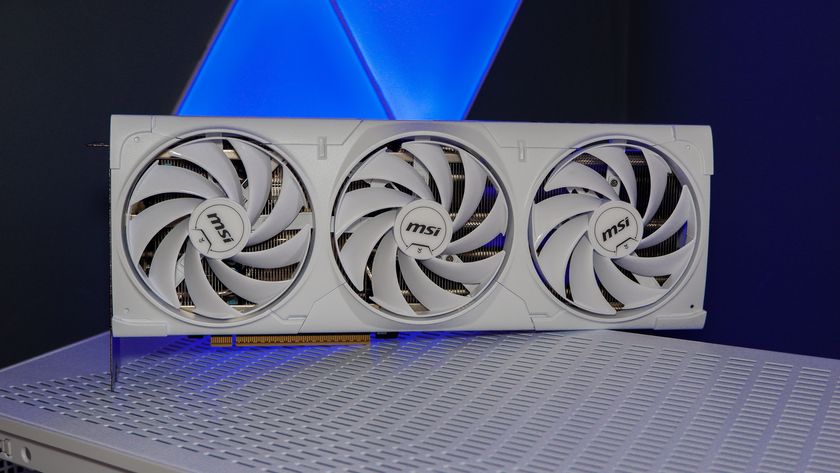Intel's supposedly RTX 3070-level GPU, the Xe DG2, is running in its labs right now
The first discrete Intel Xe DG1 GPUs are also shipping out into systems available before the end of the year.

Intel has turned on its first real gaming GPU, the Intel Xe DG2, for the first time. That might sound like it's just flipped a switch on a test rig and the thing has burst into life with little fanfare, but it is a lot more significant than that... though obviously less exciting than actually having a functional GPU that can match something like the upcoming Nvidia RTX 3070.
Though that is rumoured to be where Intel's Xe DG2 graphics card is set to be targeted, whether attached to some beefy Tiger Lake-H gaming laptop, or plumbed into a fully fledged desktop PC.
In its recent Q3 earnings call Bob 'El Cisne' Swan has been trying to talk up a tough quarter for the big chip-making machine. And with its rivals set to launch the new AMD Ryzen 5000 range of CPUs and its own next-gen enthusiast-class Radeon RX 6000 graphics cards, he's also been keen to mention the fact that it's not all about processors at Intel anymore either. It's got graphics cards.
Well, it's going to have graphics cards.
"Our first discrete GPU DG1 is shipping now and will be in systems for multiple OEMs later in Q4," says Bob (via Seeking Alpha). "We also powered on our next-generation GPU for client DG2. Based on our Xe high-performance gaming architecture, this product will take our discrete graphics capability up the stack into the enthusiast segment."
Essentially the 'power on' phase in a chip's life is a vital internal validation step, which has to be completed before the hardware is able to be sent out for external validation with software developers and system manufacturers.
So it is a significant step in the life cycle of Intel's first ever enthusiast graphics card, and therefore a pretty big deal. Though doesn't necessarily mean we're going to see anything concrete out of the company in terms of actual product before this time next year.
The biggest gaming news, reviews and hardware deals
Keep up to date with the most important stories and the best deals, as picked by the PC Gamer team.

Best gaming PC: the top pre-built machines from the pros
Best gaming laptop: perfect notebooks for mobile gaming
We've heard rumours, posted on Moore's Law is Dead, that the Xe DG2 chips will be built on the 6nm process Intel has been outsourcing, and will offer up to 16GB GDDR6—the same as AMD's upcoming RX 6000-series GPUs. It's believed that Intel itself is hoping for something along the lines of Nvidia RTX 3070-levels of gaming performance, though some sources are suggesting that might be a little optimistic.
Before all that though, we're going to get Intel's Xe DG1 discrete GPU. That's the same essential graphics silicon which is being baked into the top Tiger Lake laptops—with 96 execution units—except separate from the CPU. Y'know, discrete.
We don't think that will manifest as some desktop graphics card, but will more likely be dropped into OEM laptops launching around the end of the year. Why there's the need for both the Tiger Lake chips with the Iris Xe GPU inside them, as well as a discrete version, I'm not sure. Potentially it's so manufacturers can pair cheaper Tiger Lake processors with the top-end Iris Xe silicon.
That would make a lot of sense given that Intel has previously kept its top integrated graphics cores for the absolute top-end of its processor stack. If OEMs are able to still pair that GPU with a Core i3 Tiger Lake that would still make for a tasty, and affordable, thin-and-light machine with not a little gaming cred.

Dave has been gaming since the days of Zaxxon and Lady Bug on the Colecovision, and code books for the Commodore Vic 20 (Death Race 2000!). He built his first gaming PC at the tender age of 16, and finally finished bug-fixing the Cyrix-based system around a year later. When he dropped it out of the window. He first started writing for Official PlayStation Magazine and Xbox World many decades ago, then moved onto PC Format full-time, then PC Gamer, TechRadar, and T3 among others. Now he's back, writing about the nightmarish graphics card market, CPUs with more cores than sense, gaming laptops hotter than the sun, and SSDs more capacious than a Cybertruck.











